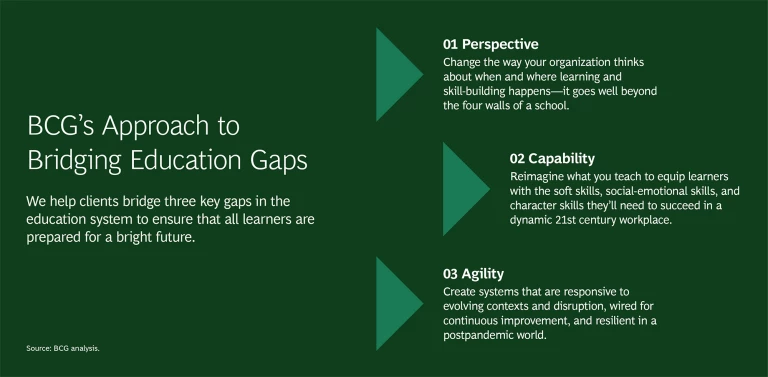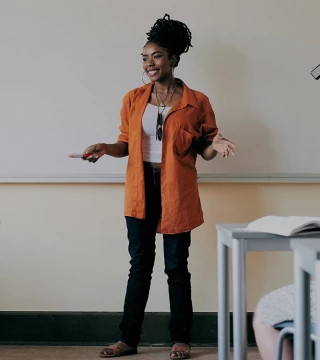Our Education Services
Related Services
Our Approach to Education Innovation
At BCG, our education strategy consulting work lies at the intersection of education, employment, and welfare. We help organizations and institutions set bold ambitions, cultivate talent, and implement technology and innovation—ensuring readiness for the workplace and sustainable success. Our education strategy consulting experts also design policies and funding strategies that support disadvantaged learners and deliver lasting social impact.

Our Areas of Focus
At BCG, we have deep expertise in supporting transformative education initiatives at the local, national, and global levels. The heart of our global education consulting practice serves traditional educational institutions, for learners from early-childhood education all the way through to lifelong learning. Beyond traditional education, we also help governments and businesses provide opportunities for lifelong learning so that people can gain the skills and capabilities that future workforces will require.
BCG serves as a thought leader and collaborator for prominent global education partners, delivering results including:
- Improving student-learning outcomes for 2.2 million students in India.
- Partnering with not-for-profit foundations—such as the Bill & Melinda Gates Foundation and the Walton Family Foundation—to strengthen education in the US.
- Hosting conventions on early-childhood education and preschool, bringing together key providers, funders, and experts.
- Developing a multisector strategy together with UNICEF’s Generation Unlimited, ensuring every young person worldwide has access to education, training, and age-appropriate employment by 2030.
- Serving as a strategic partner for the World Economic Forum’s Global Future Councils, defining a new agenda for education, skills, technology, and the future of work.
- Supporting millions of children whose education has been disrupted by conflicts and natural disasters through UNICEF’s Education Cannot Wait nonprofit.
Our Clients' Success in Education







